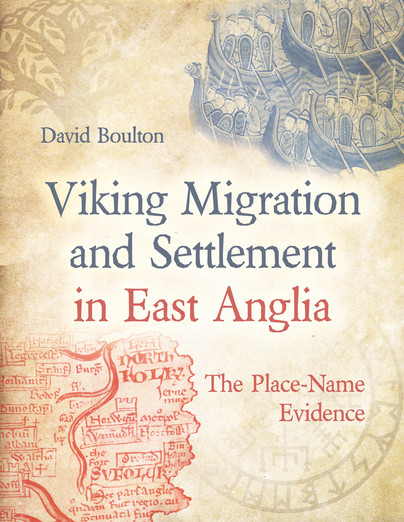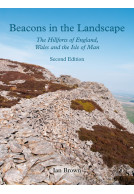Viking Migration and Settlement in East Anglia (Paperback)
The Place-Name Evidence
Imprint: Windgather Press
Pages: 240
ISBN: 9781914427251
Published: 30th September 2023
Script Academic
Pages: 240
ISBN: 9781914427251
Published: 30th September 2023
Script Academic
You'll be £39.95 closer to your next £10.00 credit when you purchase Viking Migration and Settlement in East Anglia. What's this?
+£4.99 UK Delivery or free UK delivery if order is over £40
(click here for international delivery rates)
Order within the next 10 hours, 56 minutes to get your order processed the next working day!
Need a currency converter? Check XE.com for live rates
(click here for international delivery rates)
Order within the next 10 hours, 56 minutes to get your order processed the next working day!
Need a currency converter? Check XE.com for live rates
This book shows how analysis of Scandinavian-influenced place-names in their landscape contexts can provide crucial new evidence of differing processes of Viking migration and settlement in East Anglia between the late ninth and eleventh centuries.The place-names of East Anglia have until now received little attention in the academic study of Viking settlement. Similarly, the question of a possible migration of settlers from Scandinavia during the Viking period was for many years dismissed by historians and archaeologists – until the recent discovery by metal-detectorists of abundant Scandinavian metalwork and jewellery in many parts of East Anglia. David Boulton has synthesised these two previously neglected elements to offer new insights into the processes of Viking settlement.This book provides the first comprehensive analysis of Scandinavian-influenced place-names in East Anglia. It examines their different categories linguistically and explores the landscape and archaeological contexts of the settlements associated with them, with the aid of GIS-generated maps. Dr Boulton shows how the process of Viking settlement was influenced by changes in rural society and agriculture which were then already occurring in East Anglia, such as the late Anglo-Saxon expansion of arable farming and the associated recolonisation of the inland clay plateau. These developments resulted in patterns of place-name formation which differ significantly from some of the previously accepted, orthodox interpretations of how Scandinavian-influenced place-names (especially those containing the bý and thorp elements, and the ‘Grimston-hybrids’) came into being in the Danelaw.In view of these discrepancies, David Boulton proposes an innovative, hypothetical model for the formation of the Scandinavian-influenced place-names in East Anglia, which explores differing patterns and phases of Viking settlement in the region and the possible pathways of migration that preceded them.
This book offers novel and convincing insights into Scandinavian naming in East Anglia and has important implications for the interpretation of Scandinavian names elsewhere.
Proceedings of the Suffolk Institute of Archaeology and History - January 2025
Customers who bought this title also bought...

£10.49
Saving £4.50 (30%)
Other titles in Windgather Press...















